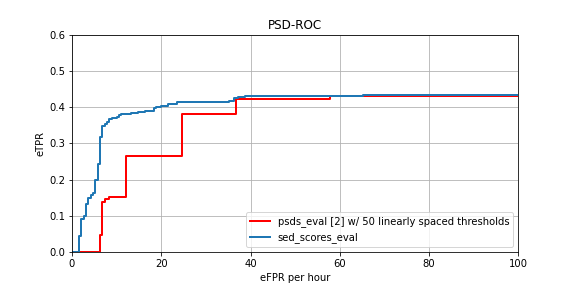Post-Processing Independent Evaluation of Sound Event Detection Systems
Due to the high variation in the application requirements of sound event detection (SED) systems, it is not sufficient to evaluate systems only in a single operating mode. Therefore, the community recently adopted the polyphonic sound detection score (PSDS) as an evaluation metric, which is the normalized area under the PSD receiver operating characteristic (PSD-ROC). It summarizes the system performance over a range of operating modes resulting from varying the decision threshold that is used to translate the system output scores into a binary detection output. Hence, it provides a more complete picture of the overall system behavior and is less biased by specific threshold tuning. However, besides the decision threshold there is also the post-processing that can be changed to enter another operating mode. In this paper we propose the post-processing independent PSDS (piPSDS) as a generalization of the PSDS. Here, the post-processing independent PSD-ROC includes operating points from varying post-processings with varying decision thresholds. Thus, it summarizes even more operating modes of an SED system and allows for system comparison without the need of implementing a post-processing and without a bias due to different post-processings. While piPSDS can in principle combine different types of post-processing, we hear, as a first step, present median filter independent PSDS (miPSDS) results for this year's DCASE Challenge Task4a systems. Source code is publicly available in our sed_scores_eval package (https://github.com/fgnt/sed_scores_eval).
PDF Abstract
